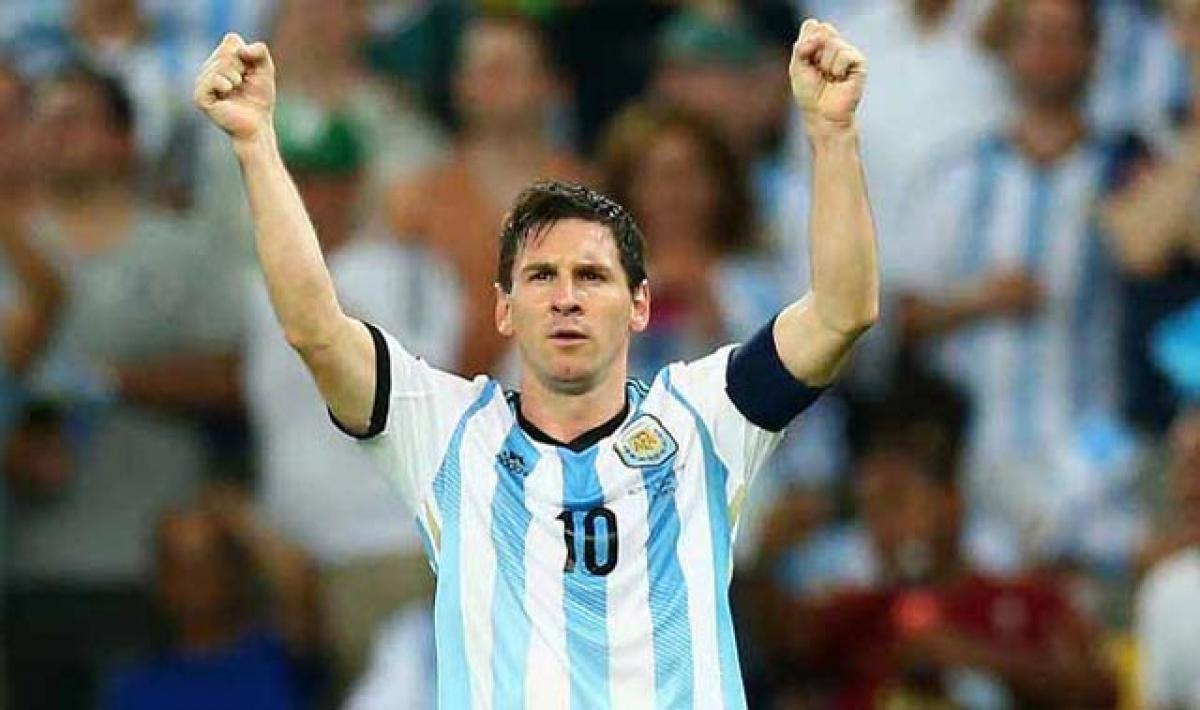Live
- Over 7,600 Syrians return from Turkiye in five days after Assad's downfall: minister
- Delhi BJP leaders stay overnight in 1,194 slum clusters
- Keerthy Suresh and Anthony Thattil Tie the Knot in a Christian Ceremony
- AAP, BJP making false promises to slum dwellers for votes: Delhi Congress
- 'Vere Level Office' Review: A Refreshing Take on Corporate Life with Humor and Heart
- Libya's oil company declares force majeure at key refinery following clashes
- Illegal Rohingyas: BJP seeks Assembly session to implement NRC in Delhi
- Philippines orders full evacuation amid possible volcanic re-eruption
- Government Prioritizes Welfare of the Poor, says Dola Sri Bala Veeranjaneyaswamy
- Two Russian oil tankers with 29 on board damaged due to bad weather
Just In

There was no third-time lucky for one of the greatest footballers the game has produced. Ironically, there is a near-surrealistic finish to a prodigiously gifted player, who symbolised sublimity of the most graceful order.
There was no third-time lucky for one of the greatest footballers the game has produced. Ironically, there is a near-surrealistic finish to a prodigiously gifted player, who symbolised sublimity of the most graceful order. In a way, the epitaph of the international career of Lionel Messi, who forever lived under the shadow of his country’s original pocket-dynamite, Diego Maradona, would be written in words as tragic as that of the French icon, Zinedine Zidane. Of course, Messi goes without any infamous head-butt or ‘Hand of God’ dubious distinctions.
Barring an Olympic and World Youth Championship gold, the Argentine and Barcelona striker may not have any senior team glories in his cupboard, but none can dispute his amazing dexterity that was not short on a goal-creating and scoring brilliance that few before him, or in later years, can, perhaps, boast of. Therein is the incredibility of Messi, who proved that he was a mortal when he announced his decision to quit after failing in the Copa America redemption.
Apparently, he owned moral responsibility because he was devastated at his own failure in the penalties, a la Roberto Baggio decades ago. For a 29-year-old taking the blame at the zenith of an extraordinary career needs guts, particularly in a sport that turns a national hero into a zero in a matter of a millisecond. That he took the responsibility, a week into his birthday and becoming Argentina’s most prolific goal-scorer, essays the humane side of Messi, who has never been red-carded since the horrific senior national debut in 2005 when he was shoved out a minute into the ground as a substitute against Hungary.
In a way, it exemplifies the fair-play tactics of the five-time Ballon d'Or winner, who donned Argentina colours for the 112th time on Sunday, in spite of the messy Argentina Football Association. As the esteemed football critic Jonathan Liew once rightly contended, “Messi, even at half-throttle, is still the most amazing sight to watch.” Indeed so, because Messi possessed all the skills known to the beautiful game and some that he invented with a presence of mind that was pure genius, written all over.
Name the skill and his repertoire was forever overflowing-magical footwork, artistry that created goals from nowhere, pin-point but well-camouflaged passing, adept dribbling and a breathtaking ball-control that any magician would be proud to have in his bag of tricks. One should feel blessed that not only did he arrive during our lifetime but also because his legacy has not been brought to any grinding halt as he will be turning up for Barcelona for whom he reserved his best, something that may not go well with the proponents of the country vs club loyalty debate, who may condemn Messi for shirking away from national duty.
Arsene Wenger was bang on when he famously announced “Messi is like a PlayStation.” If George Best is considered as the greatest talent never to have played the World Cup, Lionel Messi is inarguably the greatest never to have won a senior international trophy. Not bad for one, who, at 13, was diagnosed with growth hormone disorder.

© 2024 Hyderabad Media House Limited/The Hans India. All rights reserved. Powered by hocalwire.com







